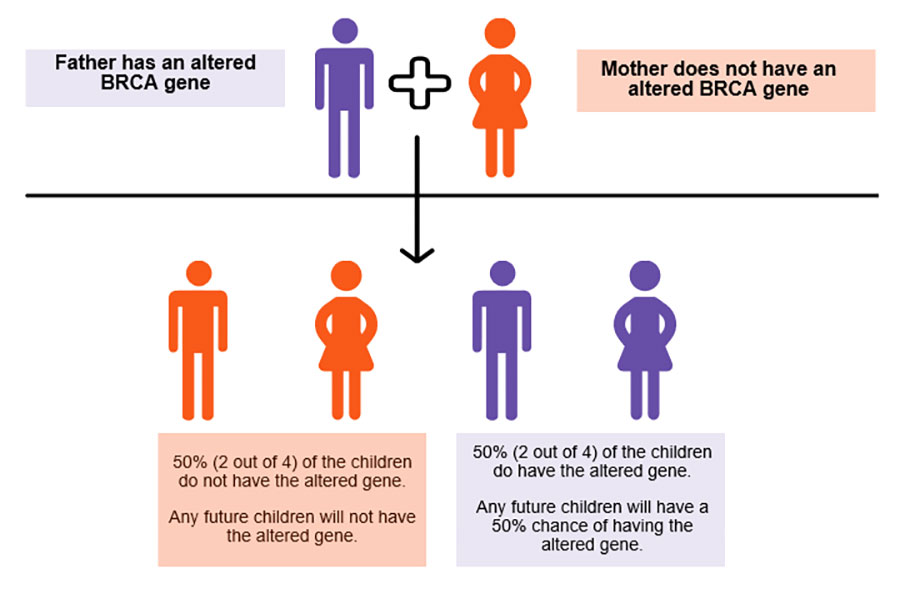How do breast cancer genes work?
Main points
- When working normally, BRCA genes protect us from breast and ovarian cancer (and prostate cancer in men). When they are altered, they increase our chances of getting cancer.
- Altered BRCA genes are passed down from our parents.
- If you have an altered BRCA gene, your close family (sons, daughters, brothers and sisters) have a 50% (1 in 2 chance) of having the altered gene.



